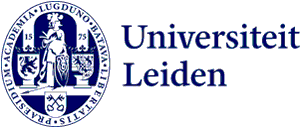
With this app, students learn to recognise an argumentative error from that aunt over Christmas dinner
In this ‘Educatips’ column, Psychology lecturers share their most important insights about teaching. This month: Zsuzsika Sjoerds and Sebo Uithol teach students critical thinking with their app 'Family Dinner'. With success: 'The old exams have become too easy.'

Zsuzsika Sjoerds was just teaching the course Psychology and Science together with Sebo Uithol when a student approached her after a lecture on argumentation errors and asked: 'But what if I hear a family member make such an error later at the table: how do I react to that?'
Sjoerds: 'That's a very applied way of looking at it. I immediately thought of an app I knew, Cranky Uncle. In it, a cranky uncle makes statements on topics like the environment and politics that make no sense at all due to fallacies. You have to correct that uncle all the time, until at some point he learns what good reasoning is.'
Because of that student's question, Sjoerds knew: 'This is what we need to create an app for. To let students practice situations where they can recognise argumentation errors, rhetoric, biases and logic errors. This generation of students is already on their phones a lot, so you can make good use of the smartphone as a learning tool.'
The app 'Family Dinner' was born, because where do argumentation errors fly around your ears more often than at an average Christmas dinner? The app is popular among students. After receiving a Grass shoots grant within FSW for the pilot, Sjoerds and Uithol are now in the process of applying for a Comenius grant to expand the app and make it available for other courses as well. How did they go about this? And do they have any tips for other teachers who want to put their teaching materials into an app?
Lesson 1: Seek collaboration
Sjoerds: 'Our director of education supported us to start this project. From that support, we were able to run a pilot. For this we contacted SOLO; they sent us on to LLInC: Leiden Learning and Innovation Centre. We then spent a whole morning brainstorming with them: what exactly do we want from such an app? What do we think is important? What is nice to have in it, but of secondary importance? For example, earning points: that might be fun as a gimmick, but does it also serve the learning objective? At LLInC, they have a lot of didactic and technical knowledge, which helped us a lot. That would also be my tip if you want to start something similar: don't reinvent the wheel, but use the expertise of others. There are plenty of initiatives, platforms and projects to connect to.'

Lesson 2: Take small steps
Sjoerds: 'When we had a plan after that morning, we started building part of the app with them and created the content. We did that in Wooflash, a platform in which you can build an interface for quizzes and exercises, and which the university recently licensed. In it, we built the a pilot version of the app and tested it with students. Before the summer, we also received a Grass shoots grant from SOLO, which will allow us to further evaluate and improve the app. The aim is to further expand the content and gamified nature of the app.
Uithol: 'The pilot was still very linear: you have a number of questions per chapter, and then you move on. We want to make it more adaptive, that you have to go back if you give wrong answers or that it gets harder when you are better, that kind of thing. But if it turns out that these adjustments don't significantly improve student learning, we won't consider them necessary.'
Lesson 3: Keep evaluating
Sjoerds: 'In addition to the course evaluation, we specifically asked students what they thought of the app. On both came a lot of positive messages.'
Uithol: 'So positive that now we actually have two problems. Firstly, the old exams have become too easy, so we have to come up with more challenging questions. Secondly, some students would prefer to throw the whole course into the app. Because now there are also parts of the course that are not offered in the app, such as philosophy of science. But we don't want to put everything in app form. This is also due to the nature of the app: it is really a way of applying what you have practised via multiple choice questions. A kind of practice exams. You're also not going to give the whole course just practice exams, that's not good teaching. Consequently, we must strike a new balance between what the app offers and what we teach through our traditional methods.'
Family Dinner for all?
By applying for the Comenius grant, Sjoerds and Uithol hope to give the app more functionalities and add more gaming elements. They also want to use this to make the app accessible to other faculties and universities. Sjoerds: 'It would be nice to make the app open source and to get a user community. Then other lecturers can come up with their own set of questions, for example focusing on education science and anthropology, but within this app with the same characters.'
Share your educa-tip?
Are you a lecturer at the Institute of Psychology and do you want to tell colleagues about how you teach? Or would you like to nominate an inspiring colleague for the next column? You can send a mail to news.psy@fsw.leidenuniv.nl putting ‘Educatip’ in the subject field.
Send message